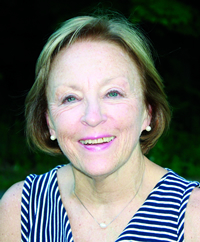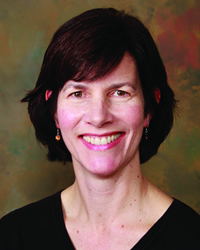Lightning quiz: What does the acronym LGBTQ stand for?
Clinicians who don’t recognize “lesbian, gay, bisexual, transgender, queer/questioning” may not recognize their LGBTQ patients, either. And not recognizing a patient’s self-identity can create communication barriers that clinicians may not even realize exist.

“LGBTQ patients are often marginalized, have lower income, may not have insurance coverage, and may have had such negative experiences with the healthcare system that they avoid it altogether,” said Barbara Snyder, MD, former Chief of Adolescent Medicine at the Robert Wood Johnson Medical School. “Just because you have a chronic illness doesn’t change who you are or your life experience.”
Dr. Snyder will kick off a special symposium on gender and sexuality issues in medicine, Treating Us Right: Lesbian, Gay, Bisexual, and Transgender Considerations on Sunday from 2:30 – 4:00 pm. Just as rheumatologists have recognized socioeconomic status and race or ethnicity as important elements in health status, attitudes and needs, sexual orientation, and gender identity are other, often less visible, aspects of identity that can affect communication and care in medical encounters.

“There is a common perception that because gay marriage was legalized at a federal level, the gay community has equal rights and everything is fine,” said co-presenter Caroline Hill, LCSW, Pediatric Rheumatology Social Worker at the University of California, San Francisco Benioff Children’s Hospital. “But in terms of access to health care and the experience of people in LGBTQ communities with medical care, the situation is still extremely difficult, particularly for transgender individuals.”
UCSF has long been a leader in providing care for LGBTQ people. But there remains much work to be done in public policy, education, and training for providers and staff at all levels.
LGBTQ and related psychosocial issues play out on three levels, Hill said.
At the macro level, these patients need federal policies and laws that protect LGBTQ individuals against discrimination in housing, education, employment, and other areas of life as well as health care.
On the mezzo level, healthcare institutions need policies that recognize LGBTQ individuals as vulnerable and underserved patients for whom practitioners and staff may need specialized training and sensitivity.
At the micro level, practitioners and office staff can do a lot make LGBTQ patients feel more comfortable in the medical environment and to encourage them to continue to seek care.
“Create a welcome environment,” Dr. Snyder said. “It’s not just the physician, it’s our whole staff being sensitive. It’s about the language you all use regarding roles and gender. You have to be sensitive. Words really matter.”
When it comes to communicating with patients, it is often the little things, the automatic assumptions, that are the most problematic, she said. Don’t make assumptions about a patients’ relationship status. Don’t assume that every young woman is at risk for pregnancy. And don’t assume that lesbians are not at risk for pregnancy.
“A high percentage of lesbian women also have sex with men,” she said. “You should be asking about male partners and what she is doing to prevent pregnancy — especially because many of the potent agents rheumatologists use may be contraindicated in pregnancy. At the same time, you can’t just tell her to go on birth control pills, which most lesbians don’t want to do because they don’t see themselves as being at risk. It takes a great deal of sensitivity to talk about the very real issues surrounding pregnancy with a female who does not self-identify as a heterosexual woman — or maybe not as a woman at all. Trust can be difficult to establish because of your patient’s prior experiences.”
Like race and ethnicity, gender identity and sexual orientation issues are well on the way to becoming a permanent part of the nation’s social fabric.
“We are living in a very dynamic time of civil rights and recognition for the LGBTQ community,” Hill said. “This session is an invitation to practitioners who want to go beyond the science of rheumatic disease to explore the humanity of medical practice. There are some very specific considerations that can enhance care for our patients in these vulnerable and marginalized groups.”
CLINICAL PRACTICE TRACK
Treating Us Right: Lesbian, Gay, Bisexual, and Transgender Considerations
2:30 – 4:00 pm Sunday • Room 201
